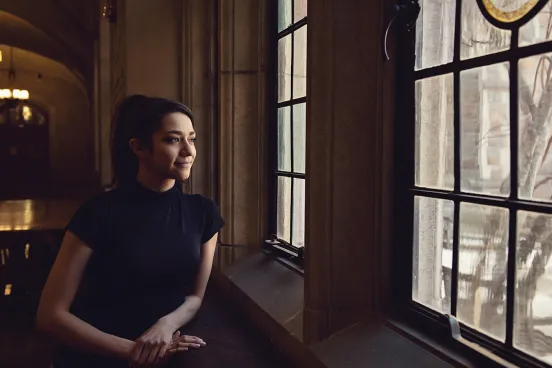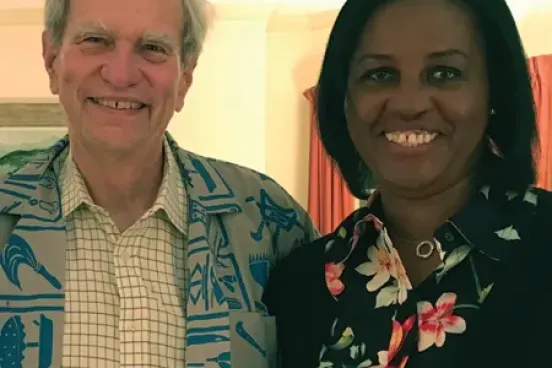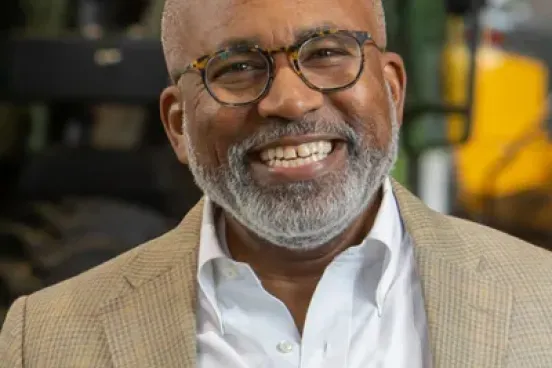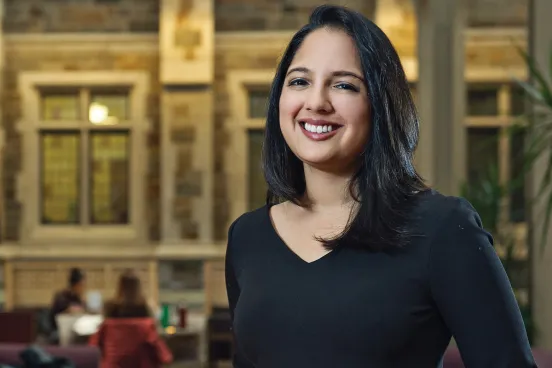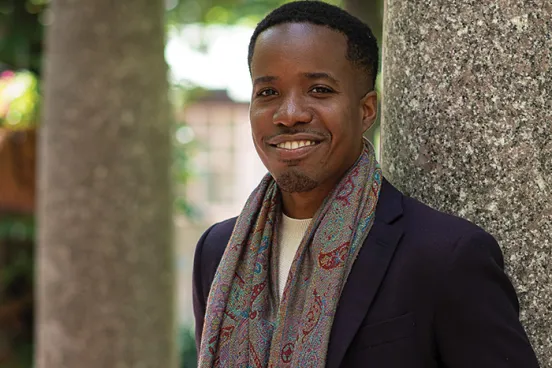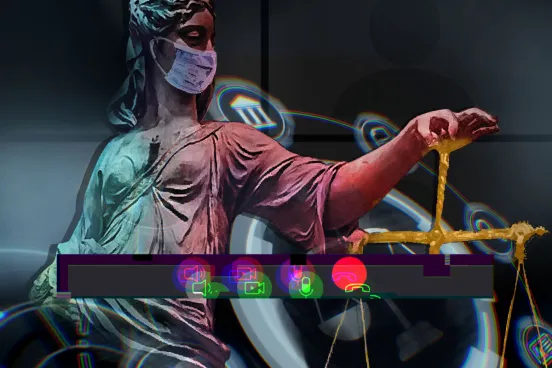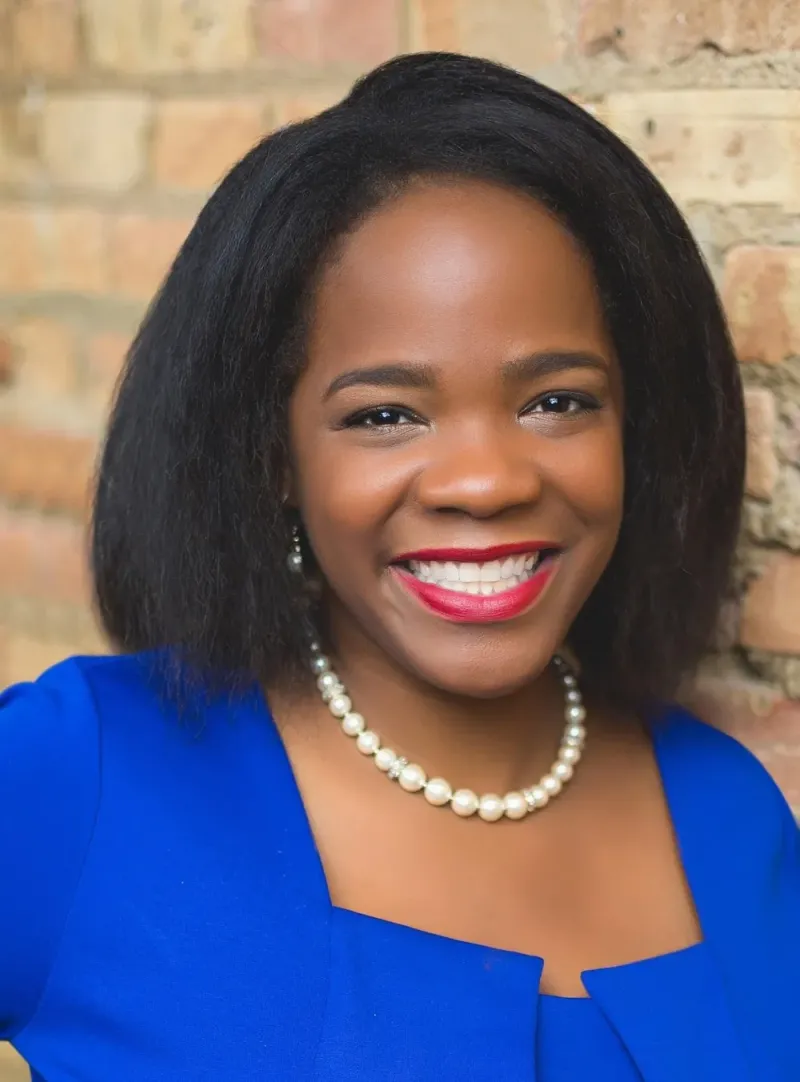
How do you foster a diverse and welcoming environment for all people within the legal profession, particularly those at law firms? It’s a pressing question for the legal industry, and one that Michelle Silverthorn, ’08, is working to address.
Silverthorn is the former diversity and education director at the Illinois Supreme Court Commission on Professionalism, where for six years she helped lead the conversation on diversity and inclusion in the workplace. Through her workshops and educational trainings, she presented to thousands of attorneys on the topics of diversity, inclusion, and implicit bias, as well as professionalism and civility. She also has written numerous articles and blog posts about those subjects, including a recent op-ed on implicit bias in the Chicago Tribune.
“Diversity is a real challenge for the legal profession,” Silverthorn says. “By the year 2044, there will not be a single majority in this country. We need to understand that diversity is our future, and consistently reinforce its value to us.”
One of the biggest changes Silverthorn has noticed about the diversity and inclusion conversation is a shift in thinking—from the playing field is level and doesn’t need to change, to the playing field isn’t level, and how to make it more equitable for everyone.
“For a very long time, we just made the assumption that everyone understands the exact same thing, that everyone is speaking the exact same language, but that isn’t the case,” Silverthorn says. “That’s something that has been a tremendous step forward in the diversity and inclusion debate.”
Still, progress needs to be greater, she concedes, especially since the legal profession lacks full diverse representation in race, color, gender, and disabilities, meaning not everyone has a seat at the table. “The legal profession is one of the most homogenous in the country,” says Silverthorn, who is certified in intercultural competency through the Intercultural Development Inventory LLC. “We went from almost 90 percent white to 85 percent white in about 20 years, and we currently are about 65 percent male. If you dive deep into those numbers, the majority of executive-level positions in law firms and the legal sector are held by white, straight men. That’s been the case for decades. Women and minorities typically leave law firms and go to different legal jobs after eight years, because they don’t see advancement happening for them.”
As new generations of legal professionals—Millennials and Gen Z’ers—enter the workplace, adds Silverthorn, they’re bringing with them new perspectives and expectations, and pushing for transformative change within the profession. “Millennials have changed the conversation for the entire legal industry,” says Silverthorn, who recently launched her own diversity consulting firm, Inclusion Nation, to give organizations the necessary skills to promote intergenerational inclusivity within their workplaces. “What you have is a generation of people coming into law firms right now who, for their entire lives, have focused on diversity, inclusion, and equality between men and women. They’ve been raised to be team players and to be transparent, and they’re coming into law firms that often don’t have transparency, openness, or team-building. They are bringing gender diversity, racial diversity, ethnic diversity, and sexual differentiation into the fold, and saying that their identities matter and don’t have to be hidden anymore. What I think has been changing, especially at law firms, is a recognition that people come into the legal profession at different starting points, and figuring out how to change the system to make it more inclusive and responsive to them.”
Silverthorn’s own varied experiences have played a role in shaping how she views diversity and inclusion. She previously was a litigation associate with Schiff Hardin in Chicago and Latham & Watkins in New York City before joining the Illinois Supreme Court Commission on Professionalism. Before that, she worked as an arts and entertainment journalist in Trinidad and Tobago, a legal researcher in Peru and Switzerland, and a volunteer teacher in Botswana and Kazakhstan.
At Michigan Law, Silverthorn discovered a student-focused and welcoming community where “administrators and professors were great at helping students find their identity.” As the legal profession strives to bring diversity and inclusion into its ranks, Silverthorn wants to play a continuing role in helping to shape its changing identity.


